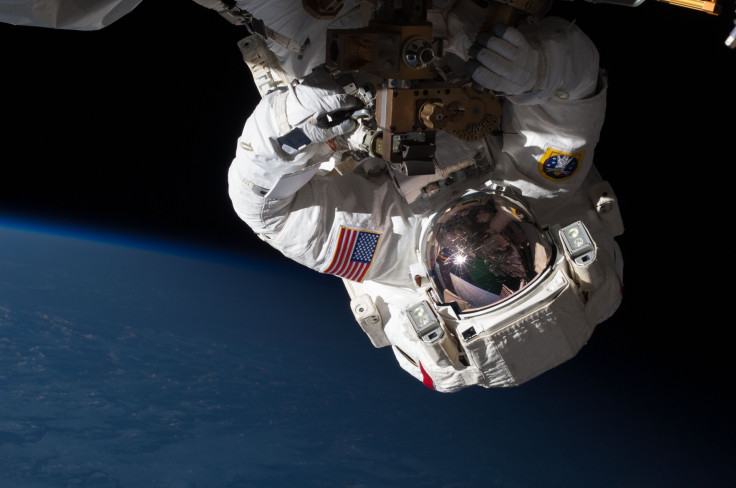Cancer Risk Doubles For Mars Astronauts Traveling Through Space Radiation, Study Says

Astronauts might be even more at risk for developing cancer than previously thought, with the cells that are damaged by radiation in space turning against the body’s healthy ones.
Scientists are calling for more research into the potential effects of radiation and how to protect space travelers against it based on their findings, which suggest the cancer risk is double what is commonly believed. Their study in the journal Scientific Reports relied on what was called a “nontargeted effect model,” in which the researchers observed what happened to healthy cells that are innocent bystanders, hanging out near cells that have been seriously damaged.
Read: Space Travel Hurts Your Blood and Muscle Strength
The model suggested that in addition to radiation damaging cells and causing mutations that might lead to cancer, it also drives those messed up cells to send signals to healthy counterparts — in a way that might cause them to mutate as well. That unhealthy relationship could lead to more tumors.
This study focused on radiation causing cancer, but the true health risks of radiation go further than that for astronauts. According to the study, astronauts exposed to radiation in space could also develop nervous system problems, cataracts and circulatory system diseases.
There have been studies into these and other conditions, including recent research that suggests the weightlessness of space affects the way blood vessels operate, decreasing the amount of oxygen that they carry to muscles and thus weakening astronauts.
The issue of space radiation causing cancer, or any other health issue, is particularly important if humans travel to Mars or any other new planet or moon, as the astronauts would get higher doses of radiation compared to what they take in low Earth orbit, such as during a stay on the International Space Station.
“The exploration of Mars will require missions of 900 days or longer with more than one year in deep space, where exposures to all energies of [galactic cosmic rays] are unavoidable,” the study says. The explorers will be completely “outside the protection of the Earth’s magnetic field.”
Lead author Francis Cucinotta, at the University of Nevada, Las Vegas, explained that current technology doesn’t do much to prevent these radiation-related illnesses.
“Current levels of radiation shielding would, at best, modestly decrease the exposure risks,” he said in a UNLV statement.
Read: What Is It Like to Poop in Space?
For humans who may one day live in a colony on another planet, like Mars, the risk could be even greater because of the long-term exposure. After traveling through unprotected space, landing on the Red Planet will offer no relief since the Martian atmosphere is so thin, radiation still beats down heavily. If those explorers build a human colony and stay long enough to have children and grandchildren, and so on, without better protection from the radiation, it would cause genetic mutations that could affect the course of human evolution.
© Copyright IBTimes 2025. All rights reserved.




















